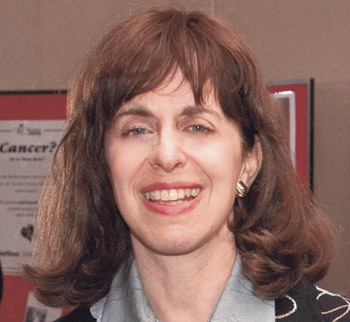TORONTO — A controversial 25-year follow-up study that concluded mammography is ineffective in lowering deaths for women at average risk of developing breast cancer is essentially useless for the general public, as well as for women at higher risk for the disease, such as Ashkenazi Jews who are more likely to have a genetic mutation that causes it, a leading expert says.
The Canadian National Breast Screening Study involved 89,835 women aged 40 to 59 who had physical breast exams every year for five years beginning in 1980. Half of those women also underwent an annual mammogram.
The study found that by 2005, almost equal numbers of women in each group were diagnosed with breast cancer – 3,250 of the group who used mammography and 3,133 who did not. Of those women, 1,005 had died of breast cancer – 500 from the mammogram arm and 505 from the control group.
Although breast cancer headlines tend to draw attention, there’s nothing new in this study, said Dr. Ellen Warner, a medical oncologist at Sunnybrook’s Odette Cancer Centre, and the fact the results were derived from tests done on “antiquated mammography equipment” poses a big problem.
“This equipment, even the best equipment [they used] is 30 to 35 years old,” she said. “There is absolutely nothing to take away.”
Around five to 10 per cent of breast cancer is due to an inherited genetic mutation. Some ethnic groups, including Ashkenazi Jews, are at higher risk of having that gene, making them more susceptible to breast cancer.
Since the study only looked at women with average risk, the conclusions cannot apply to anyone with a higher risk, such as people who carry that gene.
Warner said that only one in 40 Ashkenazi Jews have that mutation, so the majority are at average risk. The best way to figure out if you have that gene is to look at your family history, she said.
The study also said that too many mammograms has led to an over-diagnosis of cancer, since mammograms pick up small tumours that may never become harmful to the woman. That means women often undergo unnecessary surgery and therapy.
Indeed, the study said that between 20 and 25 per cent of breast cancers found using mammograms would never require treatment.
Although Warner agreed that this was the case, she said this doesn’t mean healthy women of average risk shouldn’t get mammograms.
“We have no idea which cancers… will invade and have the potential to kill a woman,” she said.
She said that average-risk women should disregard this study and still get mammograms every two years after the age of 50.
And all women, especially those who know they are at higher risk of developing breast cancer, should make sure to exercise, limit alcohol intake and maintain a healthy weight to try to prevent breast cancer, she said, adding that it’s especially important to know your family’s history.
